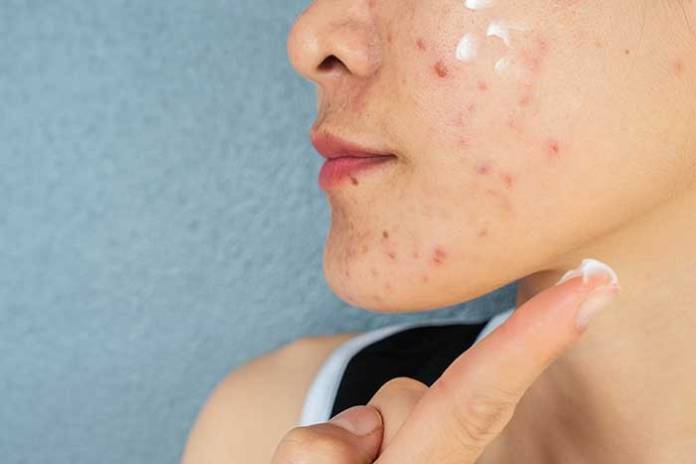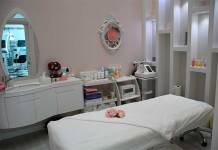
You’ve probably never heard anyone say with sincerity, “Gosh, I wish I had more acne.” Acne is one thing that nobody ever wants and yet most people have to go through it at some point in their lives. Some individuals are more prone to acne flare-ups than others. Although everyone seems to have an opinion as to how to combat it, there are a few unhelpful habits that are best avoided.
For starters, it can help to understand why acne becomes a problem in the first place. Acne occurs on the surface of the skin when pores become blocked with excess oil, dead skin, or bacteria. The severity of an acne breakout could depend on what you’re doing. Your daily habits can help tame acne or even decrease the likelihood of it happening altogether.
Acne can also be triggered by hormones and an individual’s genetic makeup. “That time of the month” or your mother’s skin type may contribute to a flare-up. Obviously, factors such as these are much harder to control, which is all the more reason to avoid certain skin-related behaviors. While everyone may wish to give advice on this, be slow to consider information not being offered by your dermatologist. Listed below are three damaging behaviors you’ll want to avoid.
1. Don’t continually switch up your skincare routine.
It can seem as though new skincare products are coming out each and every month. You might be tempted to try a new product just because your BFF recommends it. However, you might do more harm than good. It’s actually best to stick with a consistent acne treatment regimen.
Most skincare products take anywhere from six to eight weeks to start working. If your doctor recommends a prescription or an antibiotic, be sure to use the medication as indicated. Stopping for even a day or two could potentially set you back.
That said, before you apply anything to your face, read the ingredients. Some skincare and hair care products can contribute to acne breakouts. Avoid ingredients such as benzaldehyde, algae extract, lauric acid, and sodium chlorides. All of these commonly used ingredients can contribute to skin irritation or clog pores even more.
Doing a little research before buying and trying anything new can help set you up for success. There’s a dizzying array of options out there, each with its own pros and cons. Keep in mind that it can take three months or more to see noticeable results, so don’t rush the process or become impatient. Stress is no friend to your skincare regimen, either.
2. Avoid overly processed, sugary foods.
This dietary restriction might be difficult to implement, especially if you have a sweet tooth. However, steering clear of sugar will pay off in the short and long term. What you eat influences your skin’s microbiome, a.k.a. the bacteria on the surface of your skin. Food high in carbohydrates and sugar — including processed and fast food — can trigger an imbalance in your hormone levels. This imbalance, in turn, can worsen acne.
Eating a whole foods diet is typically the best way to calm down current acne and prevent future flare-ups. Of course, your body is unique. The things that trigger acne for you may not trigger acne for your friend or even a family member. For example, for many, acne is triggered by eating a diet containing milk and whey products. Others may be triggered by sugary drinks such as soda and fruit juice. Make note of foods that produce breakouts. Place a limit on how often you indulge.
Feeling overwhelmed by changing your diet? Rather than focus on what you can’t or shouldn’t eat, think about everything you can eat. Fill your plate with foods rich in omega-3 fatty acids such as salmon, seeds, and nuts. Snack on probiotic foods including yogurt, kimchi, sauerkraut, and kombucha. Incorporate healthy fats into every meal such as olive oil, coconut, and nut butter. Eating these foods will do your body — and your face — a lot of good.
3. Stop scrubbing, picking, and touching your skin.
Wouldn’t it be great if acne just disappeared overnight as magically as it seems to show up? If that were possible, it would certainly make it a lot less difficult to find an acne solution that works! However, the frustration that leads to messing with your skin too much doesn’t help.
While you might think that maintaining super-clean skin is beneficial, it can actually be detrimental to the elimination of acne. In fact, excessive scrubbing can trigger more inflammation and redness — two things that don’t go well alongside acne flare-ups.
In addition to scrubbing, excessive touching or picking at skin only makes acne worse. While popping or squeezing a zit can feel mildly therapeutic, your skin won’t be thanking you in return. Whenever a pimple is popped, the dead cells, bacteria, and pus are released to the surface of the skin. This, once again, increases inflammation. It can also cause red marks and even scarring.
If the pandemic of 2020 wasn’t enough to convince you, perhaps acne breakouts will serve to confirm that it’s time to stop touching your face. This can be a hard habit to break, mainly because you may not even realize that you’re doing it. Research confirms that the average person touches their face 16 times per hour.
Keeping your hands otherwise occupied and counting facial touches are two helpful methods for breaking this all-too-common habit. Another helpful tip is to visualize the harmful bacteria you’re putting onto the surface of your skin every time you touch it. Visualize this unpleasant reality long enough and it’s far more likely you’ll stop doing it.
Summing Up
Life would be so much easier — and a lot less stressful — without acne, right? Sadly, the truth is that acne will be a part of nearly everyone’s life. To get rid of it for good, take steps to avoid behaviors that have been shown to contribute to flare-ups.
Limiting how often you change your skincare routine is the first step to finding a routine that really works for your skin. Second, filling your plate with wholesome, nutritious foods — as opposed to processed or sugary foods — can boost your skin’s appearance from the inside out. Lastly, not touching your face is one of the simplest ways to avoid unnecessary inflammation or exacerbations.
Don’t beat yourself up if you see a new pimple — or even multiple pimples — appear. Remind yourself that your beauty runs deeper than surface level…and stressing about it won’t help!











